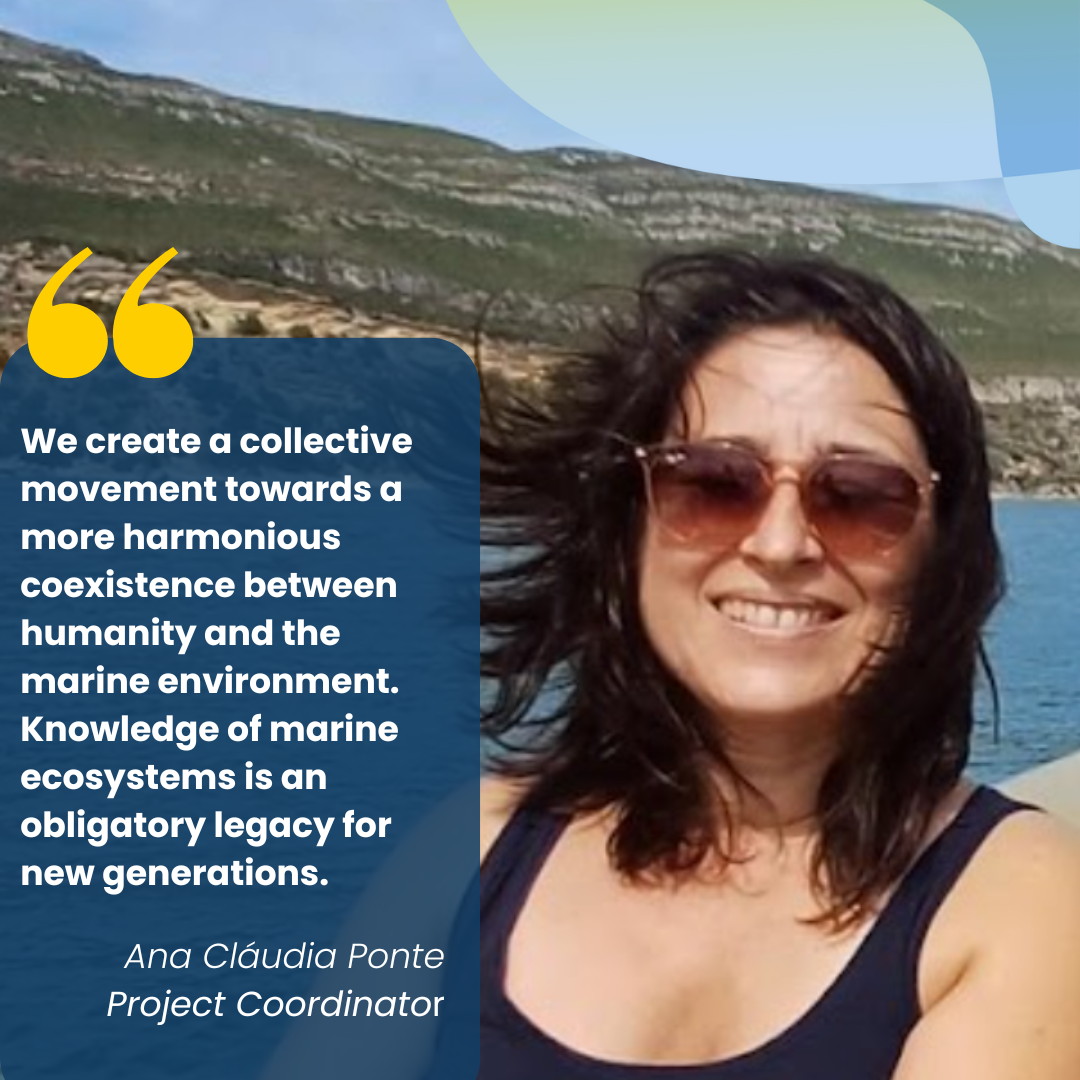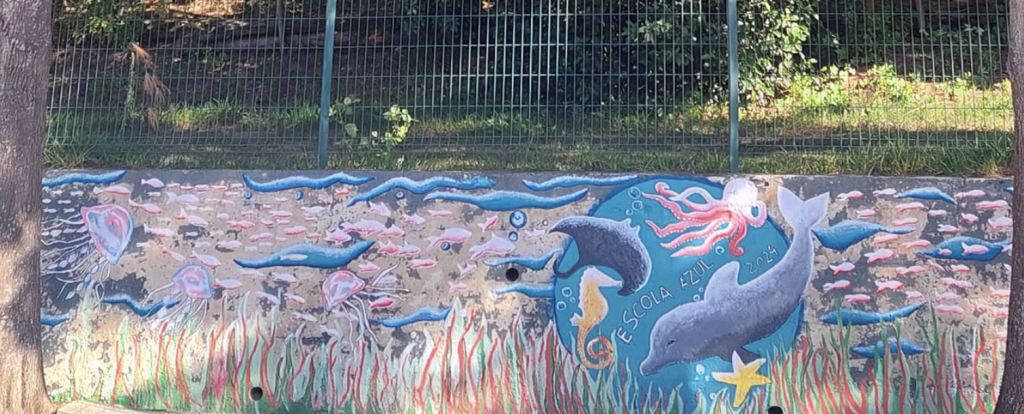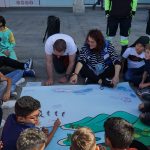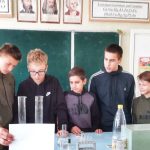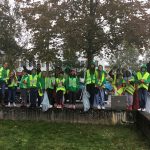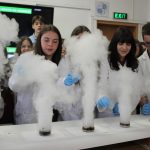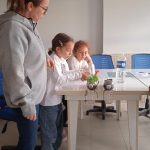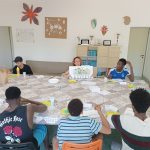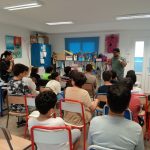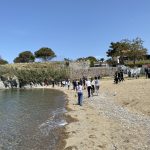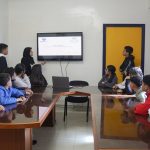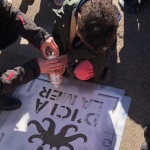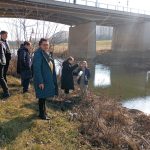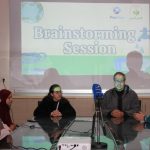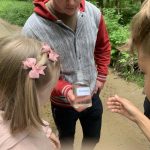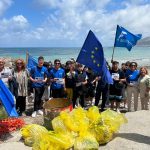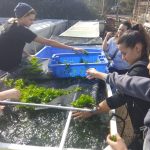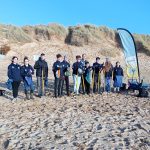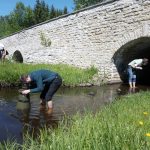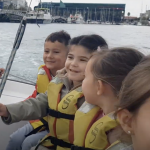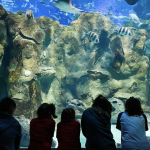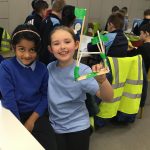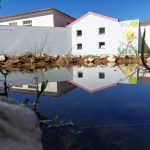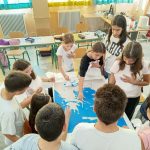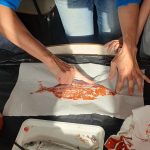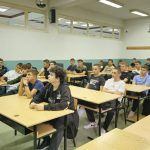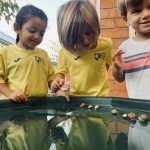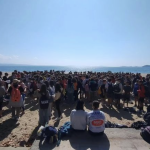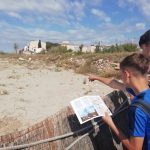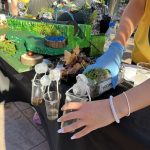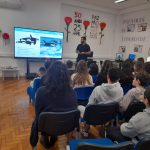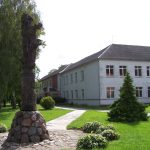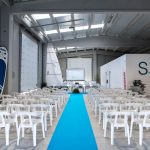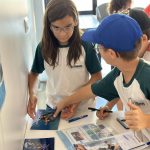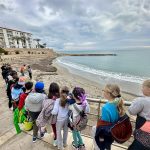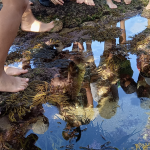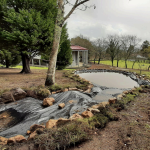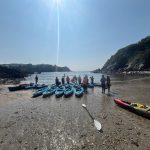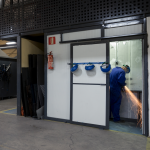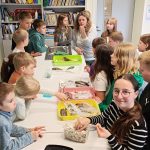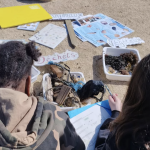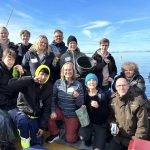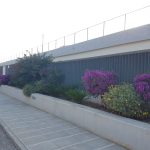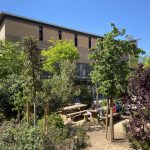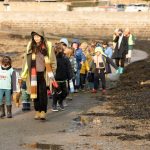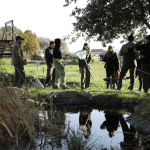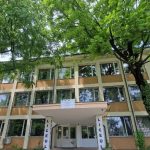
Ocean to Us
Setúbal, Portugal
2nd FUNDING CALL
The “Ocean to Us” (O2Us) project aims to foster ocean literacy and environmental awareness. This innovative project seeks to reconnect the community with its historical relationship with the sea and estuary, promoting sustainable practices and understanding marine and estuarine ecosystems.
The school’s location in the Sado River estuary provides a unique opportunity for hands-on learning and engagement with marine ecosystems. The Sado Estuary, a designated natural reserve, serves as a constant reminder of the profound connection between the city and its marine surroundings. With this deep understanding of the estuary’s significance, the school has embarked on a mission to instil a sense of environmental stewardship in its students, particularly the younger generations.
This initiative seeks to educate the community about the critical role of seagrass meadows in nurturing the estuarine nursery and their importance in oxygen production. Simultaneously, the project aims to raise awareness and cultivate scientific literacy regarding microalgae, the foundation of the food chain, oxygen generators, and organisms with immense biotechnological potential, offering pathways to a more environmentally sustainable future. Recognizing the interconnectedness of ecosystems, the project strives to foster an appreciation for marine biodiversity.
Objectives:
- Enhance Knowledge: Improve understanding of marine and estuarine ecosystems and their services.
- Student Involvement: Engage students in scientific projects and environmental conservation activities.
- Community Awareness: Raise awareness through artistic installations, murals, and radio broadcasts.
Key Activities:
- Field Engagement: To strengthen ties with the sea and organize activities such as canoeing, coastal cleaning, and boat trips.
- Artistic Installations: Create murals and installations to highlight the importance of marine conservation.
- Educational Radio: Launch “Blue World Minute” on school radio to discuss marine ecosystem conservation and student research.
- Biodiversity Studies: Conduct field and laboratory studies on intertidal biodiversity and marine prairies.
- Microalgae Research: Study microalgae production in collaboration with local aquaculture systems and universities.
- Citizen Science: Participate in at least one citizen science activity to promote hands-on learning.
Outputs:
- Educational Materials: Accessible resources for teachers and students.
- Databases: Compilation of lab and field activity results.
- Podcasts: “Blue World Minute” episodes on marine conservation.
- Publications: Articles, news, documentaries, and posters to share findings.
Innovation and Community Engagement:
The O2Us project stands out for its focus on local knowledge and resources, student-led activities, and open-access materials. By involving students in decision-making and promoting public exhibitions, the project fosters a sense of ownership and responsibility towards marine conservation. Collaborations with local organizations, media outreach, and social media promotion further amplify the project’s impact, encouraging the entire community to participate in protecting marine ecosystems.
